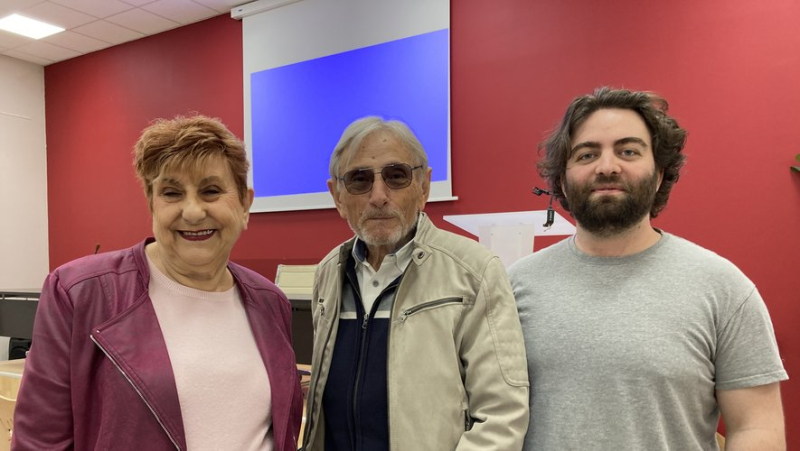Parkinson's disease: research is progressing but there have been 2.5 times more cases in 25 years

Aimée Thouvenot, France Parkinson Gard delegate, Alain Crespy, a patient, and Tilio Cognard, responsible for professional training for France Parkinson. Midi Libre – K.H.
On the occasion of World Parkinson's Day, the Gard delegation from France Parkinson took stock this Wednesday. Sport, diet, treatment, research… Where are we on this neurodegenerative disease ?
"The first symptoms appeared ten years ago, I had just retired as a university professor at 68 years old", tells Alain Crespy who, for Parkinson's Day, came to take stock of medical research for patients and their families gathered at the Udaf in Nîmes by the Gard delegation from France Parkinson. "As soon as the tremors started, I thought of Parkinson, a shock, obviously !" The treatment, every three hours, allows it to alleviate the symptoms but "the dosages increase, so do the side effects, the quality of life is less good. The most annoying thing is dyskinesia and fatigue. The France Parkinson association allowed him to find information and comfort. "We feel less alone…", he slips.
Slow progression, chronic disease
And he’s definitely not alone. The disease affects 270,000 people today and “will increase by 30% by 2030" , specifies Tilio Cognard, from France Parkinson (see box). Around 20% of patients are diagnosed before the age of 65. The disease advances insidiously, symptoms appear when more than 50% of dopamine neurons are destroyed.
"Genetic causes are secondary, 10% of cases,summarizes Alain Crespy. Neurotoxic pollutants and nanoparticles are suspected, there is a range of elements but nothing formally established by research. He talks about his work with benzene derivatives, another patient talks about his work in army radars "and electromagnetic waves& ;quot;.
“We are waiting for a national plan”
Tilio Cognard, head of professional training at France Parkinson, came from Paris for this day organized in Nîmes. "There is not yet enough knowledge about the disease and its management,” he insists. For example, patients must take their medications at a set time, to the nearest quarter of an hour. Home help or nursing homes often do not do this. So we're raising a lot of awareness.
"We also emphasize fairly intense physical activity: 45 minutes a day, it improves symptoms and stimulates the production of dopamine ;quot;, he explains. And on food: interactions between drugs and proteins must be avoided.
The association, "funded 90 % by donations and legacies", allows sharing between patients and support for caregivers. And funds research to the tune of 1.50 M€ per year. "There are avenues, an antidiabetic drug is being tested which gives good results, but it’takes a long time". France Parkinson is waiting for a national plan on neurodegenerative diseases to move forward more quickly.
Several lines of research are working on both the causes and the symptoms, notes Alain Crespy who lists the introduction of genes allowing the synthesis of dopamine in brain cells, cell therapy to replace neurons disappeared by a transplant of new cells, the transformation of skin cells into neurons or even immunotherapy. "From the’ hope but the deadlines are still very far away.




